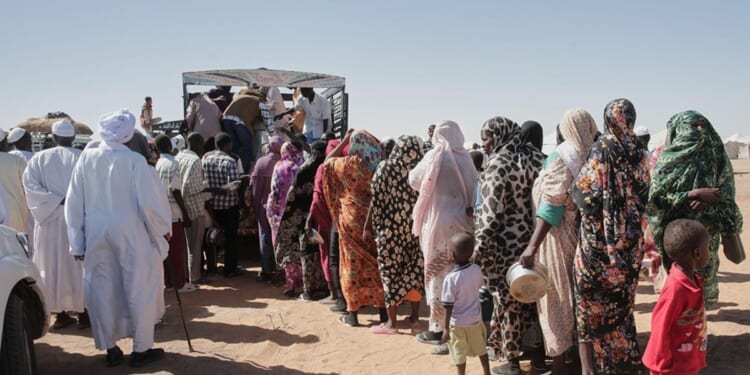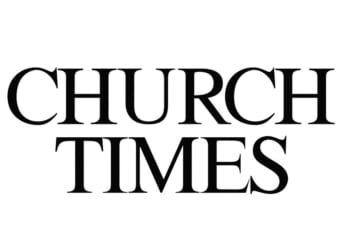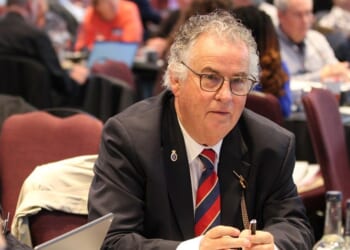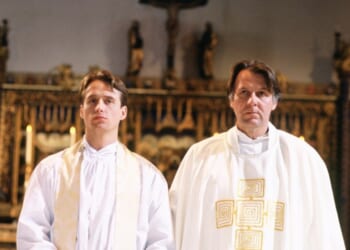WHEN asked during an interview last week about the focus of his ministry, the Archbishop of Sudan, the Most Revd Ezekiel Kondo, had a simple answer: “To see that my people survive.”
Visiting the UK this month to raise awareness of the conflict in the country that has produced the world’s largest humanitarian crisis, he spoke in an interview with the diocese of Salisbury about the “terrible” hunger in Sudan.
“Some of them eat trees, eat animals’ food,” he said. “People are scattered all over. [The humanitarian crisis] is huge. And we thank God there are some organisations which are trying, but because of the security situation it is difficult, particularly in Darfur.”
More than 21 million people in Sudan — 45 per cent of the population — are not getting enough to eat, the World Food Programme (WFP) reports.
Last month, Archbishop Kondo and his fellow bishops in Sudan issued a statement expressing “deep grief and condemnation of the mass killing of civilians in all Sudan” (News, 7 November). It came four days after the city of El Fasher, in north Darfur, fell to the Rapid Support Forces (RSF) after a siege of more than 500 days.
At the request of the UK, the UN Human Rights Council last Friday convened an emergency session on the situation in and around El Fasher. The UN High Commissioner for Human Rights, Volker Türk, told the session: “Bloodstains on the ground in El Fasher have been photographed from space. The stain on the record of the international community is less visible, but no less damaging.” He was referring to satellite imagery showing discolorations on the sand in El Fasher which Yale University’s Humanitarian Research Lab identified as bloodstains.
The atrocities were foreseen and preventable, Mr Türk said. “My Office has issued more than 20 statements on El Fasher alone over the past year, based on information verified by our team. We warned about the spread of famine, as people starved to death. And we warned that the fall of the city to the Rapid Support Forces would result in a bloodbath.”
A UK-drafted resolution was carried, securing international consensus for an urgent UN inquiry.
Last week, Archbishop Kondo said: “We thank God that the Quad group is working very hard to bring the groups together, to stop the war, and bring peace.” While in the UK, he has visited the dioceses of Salisbury and Leeds, which have links with Sudan, as well as UK parliamentarians.
The Foreign Secretary, David Lammy, told the House of Commons on Tuesday that the Government was “engaging intensively with the Quad countries — the United Arab Emirates, Saudi Arabia, Egypt, and the United States — which have now together called for an immediate humanitarian truce, and an end to external support and arms that are fuelling conflict.”
Archbishop Kondo, who was accompanied to the UK by the Assistant Bishop of Kadugli & Nuba Mountains, the Rt Revd Hassan Osman, said that what was happening in El Fasher was also happening in the Nuba Mountains, Kordofan, and had happened in Khartoum. “This is where atrocities are being committed.”
Last week, Mr Türk said that, in the south-central Sudanese region of Kordofan, which borders Darfur, the fighting was increasing: “All the signs are there: bombardments, blockades, people forced from their homes, a despicable disregard for civilian lives. Kordofan must not suffer the same fate as Darfur.
Archbishop Kondo said: “Media has neglected the situation in Sudan for too long, and, if you really want to compare the situation of Sudan and Ukraine or Gaza, I think Sudan may be even worse. People are dying just silently. You can imagine somebody is being asked to dig his own grave in order to be buried in after his death. Things are so bad.”
He continued: “You cannot just watch and see people dying, atrocities continuing to be committed, war continues to rage. I want to call our partners in the international community to intervene.” He urged Christians whom “God has blessed . . .with good wealth” to share it with Sudan.
The Church’s pastors were “working very hard” to provide food and aid, helped by money transfers from supporters, he said. “People are suffering, but they still have faith that God is still in control. Despite what is going on, the Church is growing.”

















